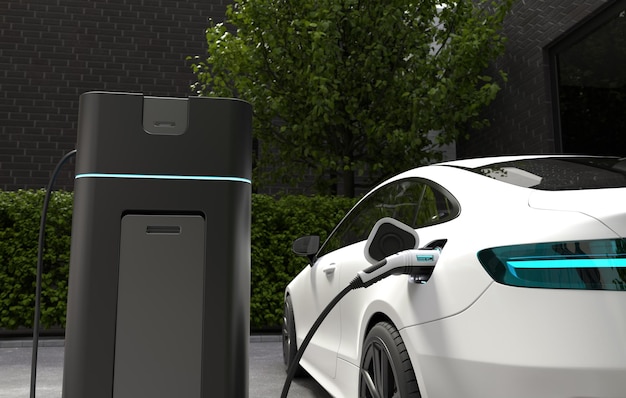
Deciding between an electric vehicle (EV) and a hybrid involves considering various factors, including environmental impact, cost, convenience, and your driving habits. Both types of vehicles have their advantages and disadvantages, which should be weighed carefully to make an informed decision.

EVs are generally considered more environmentally friendly than hybrids. They produce zero tailpipe emissions, which significantly reduces air pollution and greenhouse gas emissions, assuming the electricity used to charge them comes from renewable sources.
On the other hand, hybrids combine a gasoline engine with an electric motor, reducing but not eliminating emissions. While hybrids are more fuel-efficient than traditional gasoline-powered cars, they still rely on fossil fuels, contributing to pollution and climate change.
The upfront cost of EVs is typically higher than that of hybrids, primarily due to the expensive battery technology. However, this gap is gradually narrowing as battery prices decrease and more affordable EV models enter the market.
Additionally, EV owners often benefit from lower running costs. Electricity is generally cheaper than gasoline, and EVs have fewer moving parts, resulting in lower maintenance costs. Many regions also offer incentives, such as tax credits and rebates, to offset the higher purchase price of EVs. Hybrids, while more affordable initially, might incur higher long-term fuel costs and maintenance expenses compared to EVs.
Charging infrastructure is a crucial consideration for EV buyers. While the number of charging stations is increasing, they are still not as ubiquitous as gasoline stations. Home charging solutions can mitigate this issue, but they require an initial investment and may not be feasible for everyone, particularly renters or those without a garage.
Charging times for EVs also vary, ranging from several hours with a standard home charger to around 30 minutes at fast-charging stations. In contrast, hybrids offer the convenience of refueling at any gasoline station, and their electric range is supplemented by the gasoline engine, making long trips easier without the need for frequent recharging.
Your driving habits play a significant role in deciding between an EV and a hybrid. If your daily commute is short and you have access to reliable charging options, an EV might be the better choice. EVs excel in urban environments where short trips and stop-and-go traffic maximize their efficiency.
On the other hand, if you frequently undertake long trips or live in an area with limited charging infrastructure, a hybrid could be more practical. Hybrids offer the flexibility of driving longer distances without worrying about finding a charging station, while still providing improved fuel efficiency over traditional gasoline vehicles.
The automotive industry is rapidly evolving, with significant advancements in EV technology, including increased range, faster charging times, and improved battery life. As these technologies continue to improve, the advantages of EVs over hybrids are likely to become more pronounced.
With growing concerns about climate change and stringent emissions regulations, many countries and manufacturers are pushing for a transition to all-electric fleets, which could affect the long-term viability and resale value of hybrids.
The decision between an EV and a hybrid ultimately depends on individual circumstances, including environmental priorities, budget, driving habits, and access to charging infrastructure. EVs are generally more environmentally friendly and offer lower running costs, but they require a suitable charging setup and may have higher initial costs.
Hybrids provide a practical middle ground with greater flexibility and lower upfront costs, but they still rely on fossil fuels and may have higher long-term operating expenses. Careful consideration of these factors will help you make a choice that aligns with your needs and values.

















